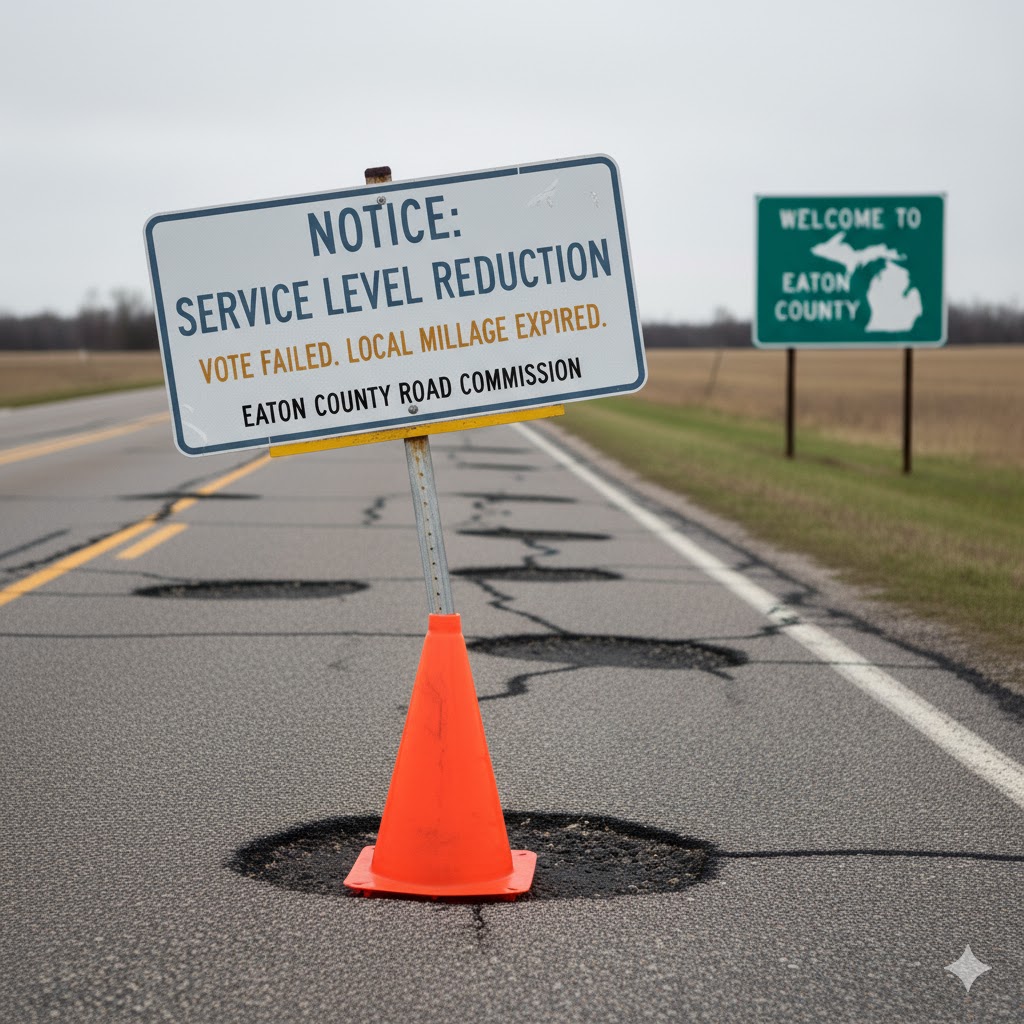Michigan’s Property Tax Repeal: Who Really Loses Control?
A citizen-led movement, **AxMITAX**, proposes eliminating all property taxes in Michigan. Proponents promise the largest tax cut in state history, but critics warn of a catastrophic loss of local control, shifting funding power to Lansing and threatening essential services. This analysis explores the proposal’s mechanics, the risks to community autonomy, and the real-world consequences already unfolding in places like **Eaton County**.
How Local Funding Would Change
The core of the debate centers on who controls the purse strings: local voters or state legislators. The AxMITAX plan would replace dedicated, locally controlled property tax revenue with state-allocated funds from increased sales and excise taxes.
Current System: Local Control
Property owners pay taxes **directly** to local municipalities (city, township, county).
Local elected officials set millage rates based on **community needs and voter approval**.
Funds are used for specific local services: police, fire, libraries, parks, and roads.
Proposed AxMITAX System: State Control
Property taxes are eliminated. The state increases the **sales tax** and adds new excise taxes.
All tax revenue goes to a **state-controlled fund in Lansing**.
The state legislature allocates funds back to communities, with **no guarantee** they match local needs or priorities.
Simulating the Impact on a Local Budget
Local property taxes give communities **direct control** over service funding. This simulation shows how a typical local budget might be re-prioritized if funding decisions were shifted to the state level, where local needs may be overlooked. Click the buttons to see the potential shift.
Policy analysts and the Michigan Municipal League (MML) have highlighted the dangers of shifting funding power to Lansing. The MML suggests this would be the most **’detrimental’ policy**, turning funding decisions into a political process that may not represent rural priorities or guarantee adequate school funding (WKAR, MML).
Eaton County on the Front Lines
Eaton County provides a stark, real-world example of what happens when communities face funding shortfalls. The current system relies on county-wide millage votes, but a growing divide between more prosperous townships and rural areas highlights the vulnerabilities.
Township Funding Divide: Delta vs. Rural Areas (Interactive)
Delta Township
Prosperous Area Vote Pattern
Rural Eaton County
Service-Dependent Area Vote Pattern
Click an area to see details
This illustrates how areas like **Delta Township** (Lansing State Journal) often pass dedicated local millages, ensuring their services are maintained, while rural communities remain vulnerable to failed **countywide** votes (Eaton County official millage info).
Consequences of Failed Millages: Services Cut
Sheriff Patrols
After a failed millage, the Sheriff’s office faced a deficit and cut road patrols (Fox47News, WKAR). Local residents report a decline in public safety, noting, “We’re on our own out here,” reflecting the growing gap between service-rich and service-poor areas (Local Anecdote, WKAR).
Parks & Recreation
County park maintenance has been reduced. In contrast, Delta Township maintains high-quality, programmed funding for its own parks, demonstrating the ability of wealthier areas to bypass the countywide service decline (Lansing State Journal, Local Anecdote).
Public Transit
The Eaton County Transportation Authority (EATRAN) has faced funding deficits due to failed millage proposals (WKAR). This service reduction disproportionately affects rural, non-driving residents who rely on the service for essential needs.
Broader Implications: The Urban vs. Rural Power Dynamic
If AxMITAX passes, Eaton County’s internal conflicts would scale to a statewide level. Resource allocation would be influenced by the legislature, whose decisions are often guided by the priorities of dense, urban, and suburban population centers.
Michigan Population Distribution and Political Influence
This chart illustrates how the population of just a few major counties (e.g., Wayne, Oakland, Macomb) outweighs that of numerous rural counties combined. Rural, often ‘red’ counties risk losing autonomy entirely under a ‘blue’ majority state government that controls all resource allocation, a concern highlighted in public debates (Reddit/r/Michigan).
The elimination of property taxes promises relief, but the price is the fundamental power of local voters to fund their own police, parks, and schools. For less prosperous or rural communities, who stands to lose the most is clear: **those who can least afford to ‘do without’ will be subject to state-level political decisions made miles away.**
